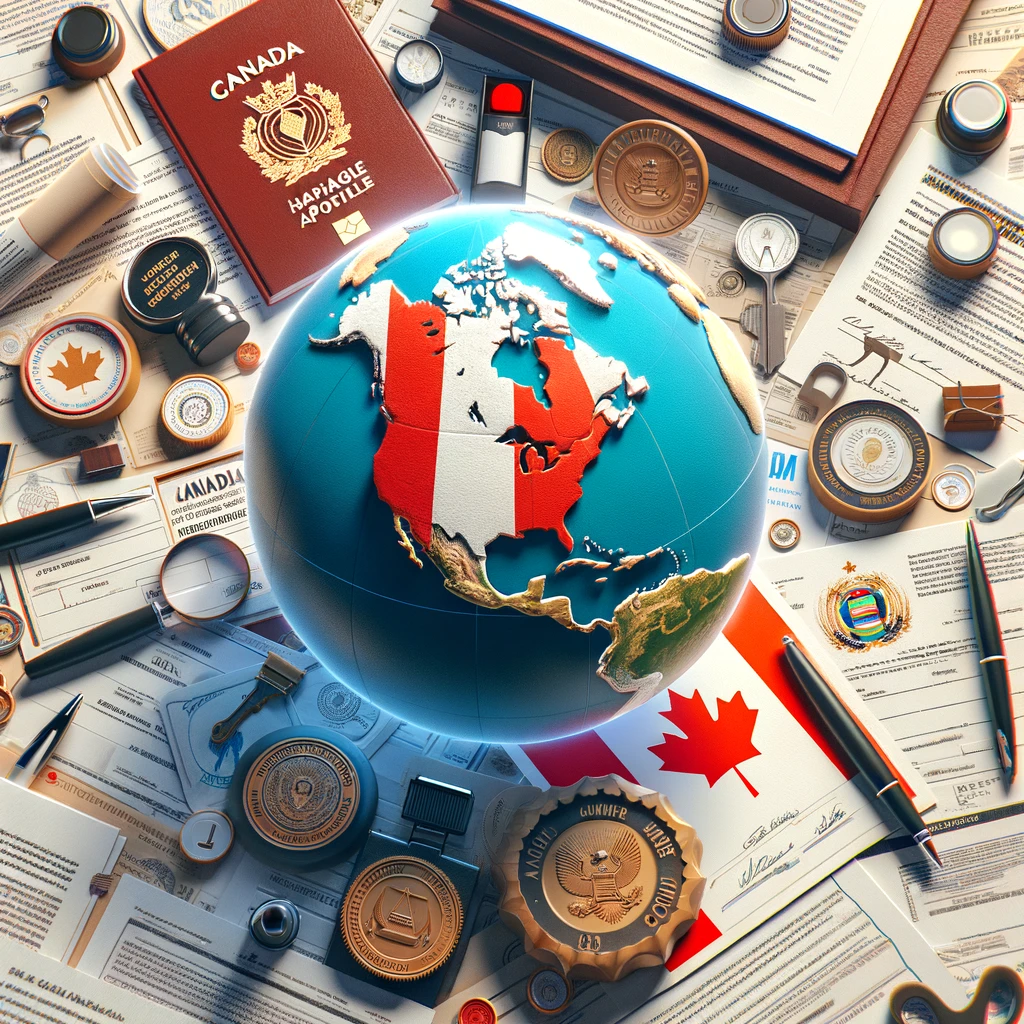Canadian Apostille for use in Nicaragua
In a significant development for international document authentication, Canada has officially joined the Hague Apostille Convention as of January 11, 2024. This milestone simplifies the process for individuals and businesses needing to use Canadian documents officially in Nicaragua, marking a pivotal shift towards streamlining global document verification processes.
Understanding the Apostille in the Context of Canada and Nicaragua
The Apostille is a form of authentication issued to documents for use in countries that participate in the Hague Convention of 1961. Before Canada's accession to the convention, Canadian documents needed to undergo a cumbersome and time-consuming process of legalization to be recognized in Nicaragua. This involved multiple steps, including authentication by Global Affairs Canada and further verification by the Nicaraguan consulate or embassy.
Now, with Canada's membership in the Hague Apostille Convention, the need for consular legalization is eliminated for documents intended for use in Nicaragua. Instead, an Apostille from either Global Affairs Canada or a provincial competent authority (Alberta, British Columbia, Ontario, Quebec, or Saskatchewan) is sufficient, depending on where the document was issued and its nature.
Why You May Need an Apostille for Nicaragua
The Apostille can be required for a variety of reasons, especially for individuals and businesses engaging in international operations or personal affairs across borders. Common scenarios include:
- Business Matters: Companies expanding operations into Nicaragua, engaging in trade agreements, or establishing legal entities may need to apostille documents such as articles of incorporation, business licenses, or contracts.
- Family Matters: Individuals dealing with family law cases, inheritance, or custody issues across Canadian and Nicaraguan jurisdictions may require authenticated birth certificates, marriage licenses, or court documents.
- Marriage: Couples planning to marry in Nicaragua may need to apostille birth certificates, single status affidavits, or divorce decrees to comply with local laws.
Types of Documents Requiring Apostille
Virtually any official Canadian document intended for use in Nicaragua can now be apostilled, including but not limited to:
- Birth, marriage, and death certificates
- Educational documents (diplomas, transcripts)
- Legal documents (powers of attorney, court orders)
- Corporate documents (bylaws, articles of incorporation)
- Government-issued identification documents
Why Choose Global Document Solutions?
Global Document Solutions stands out as your premier partner in navigating the Apostille process, offering unparalleled expertise and reliability. Here's why:
- Three Decades of Experience: Our extensive experience ensures a deep understanding of international document authentication processes, enabling us to provide accurate and efficient service.
- Expertise in Canadian and Nicaraguan Requirements: We possess in-depth knowledge of the specific requirements for document authentication in both Canada and Nicaragua, ensuring a seamless process.
- Comprehensive Service: From document retrieval and preparation to obtaining the Apostille, we handle every step, offering a hassle-free experience for our clients.
- Reliability and Trust: Our long-standing reputation for professionalism and integrity makes us a trusted partner for individuals and businesses alike.
Conclusion Trust The Experts @ Global Document Solutions
Canada's accession to the Hague Apostille Convention marks a significant advancement in international legal and business practices, particularly in the facilitation of document use between Canada and Nicaragua. Whether for business, family matters, or marriage, the need for streamlined, reliable document authentication is paramount. Global Document Solutions, with its extensive experience and commitment to excellence, is ideally positioned to assist clients in navigating this new landscape, ensuring that their documents are authenticated efficiently and correctly for use in Nicaragua.


